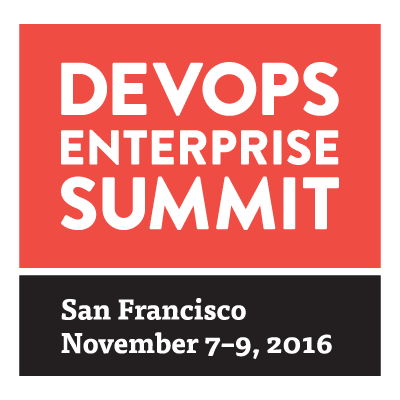Whenever we ask CIOs what books they recommend, someone will inevitably mention “The Phoenix Project” by Gene Kim, Kevin Behr, and George Spafford. In fact, it’s not uncommon for CIOs to buy copies for their IT department. Although it's sold over 250,000 copies since 2013 and is widely considered the de facto must-read for anyone who wants to better understand the DevOps movement, co-author Gene Kim says he just didn't know enough about DevOps at the time to write the book he really wanted to publish first. But now he does, and he's poured everything he's learned over the last three years into the latest book he’s co-authored, “The DevOps Handbook.”
In addition to launching this highly-anticipated follow-up book, Kim is also gearing up to host the DevOps Enterprise Summit, Nov. 7–9, in San Francisco. The Enterprisers Project caught up with him to discuss both.

The Enterprisers Project (TEP): “The DevOps Handbook” has been a long time coming for fans of “The Phoenix Project.” What can readers expect in your latest book?
 Kim: The most common feedback we got after “The Phoenix Project” was that it was a story that resonated with readers' own journeys within their companies. But they all wanted to know – how can I put those principles and practices into place to become a high-performing technology organization? The DevOps Handbook is intended to be that prescriptive, nonfiction companion guide to “The Phoenix Project.”
Kim: The most common feedback we got after “The Phoenix Project” was that it was a story that resonated with readers' own journeys within their companies. But they all wanted to know – how can I put those principles and practices into place to become a high-performing technology organization? The DevOps Handbook is intended to be that prescriptive, nonfiction companion guide to “The Phoenix Project.”
I don’t think I’ve ever learned as much as I have any time in my life as I have learned over the last three years while writing the Handbook. Something that we've talked about before is that there were so many unanswered questions about implementing DevOps in large, complex organizations. In fact, that's one of the reasons why we started hosting the DevOps Enterprise Summits. So, what makes “The DevOps Handbook” so valuable – and something I’m incredibly proud of – are the 48 case studies in the book from organizations like Capital One, Target, Nordstrom, and the United States government that have cracked the code on DevOps and shared their experiences and lessons learned.
TEP: Are there still myths or misconceptions that are holding CIOs back from considering a DevOps approach?
Kim: There’s this notion that DevOps is only for the Amazons, Facebooks, Googles of the world. We now know just from the weight of evidence that no, it’s for every large, complex organization. For instance, CIOs may be dealing with mainframe applications that have been around for 30–40 years. In the book, we talk about very concrete examples of how DevOps has been applied for almost every type of application, including the HP LaserJet firmware. Considering all the firmware that supports the Enterprise HP LaserJet printers, this anecdote exemplifies that DevOps could be utilized for almost anything.
TEP: What would you say are some of the key takeaways for CIOs from "The DevOps Handbook?"
Kim: The book talks about the role of the leader in a DevOps transformation. So often, even at the CIO level, too much is delegated away – for example, architecture or the technical practices. We make a thesis that DevOps requires three things:
- It’s an architecture that enables small teams to work independently and quickly so they can develop tests, and deploy value to customers without having to coordinate with hundreds – or even thousands – of other engineers.
- It requires technical practices, like version control, and continuous integration, and proactive production telemetry. These are things that the leader must also care about; it’s not something they can delegate to the team leader level or the line engineer.
- The third is the cultural norms – how do we foster a culture of learning where it’s safe to fail? Because that psychological safety is needed to talk about mistakes, and that’s required to enable innovation. That safety can only come from leadership. For the CIO, these things are squarely within their area of responsibility and imperative if they want to succeed with DevOps.
TEP: The DevOps Enterprise Summit is coming up in early November. What can you tell us about the event this year?
Kim: One thing that is exciting is that five organizations are presenting for the third time at the DevOps Enterprise Summit this year. I don’t know of any other conferences where attendees get to see an unfolding documentary of business leaders on their journey. For these return speakers, we'll get an update on what they've done since the previous year, what's changed, any new challenges they are experiencing, and where they are going from here. For me, that’s a real treat.
Two, we'll have even more surprising people telling their amazing transformations. Susanna Brown, managing director, operations technology at American Airlines, is scheduled to discuss the DevOps transformation for a significant chunk of the company's non-e-commerce properties – namely, the ones that support flight operations, crew scheduling, and safety.
 Additionally, we'll have a variety of facilitating workshops pairing learners and leaders. We don’t learn as much from theory and what people say. We learn from experience, talking to peers, hearing about other people’s journeys. And so for the top problem areas people have around DevOps – leading change, organizational design, security, and technical practices – we will have one-hour workshop sessions to see if we can deliberately create more of these serendipitous interactions and focused networking to help people within the community help each other.
Additionally, we'll have a variety of facilitating workshops pairing learners and leaders. We don’t learn as much from theory and what people say. We learn from experience, talking to peers, hearing about other people’s journeys. And so for the top problem areas people have around DevOps – leading change, organizational design, security, and technical practices – we will have one-hour workshop sessions to see if we can deliberately create more of these serendipitous interactions and focused networking to help people within the community help each other.
The DevOps Enterprise Summit will take place Nov. 7–9. Look for our forthcoming Q&A series with a few of the speakers in the coming days!
An excerpt of The DevOps Handbook is available here: https://itrevolution.com/handbook-excerpt?utm_source=RedHat&utm_medium=o…




